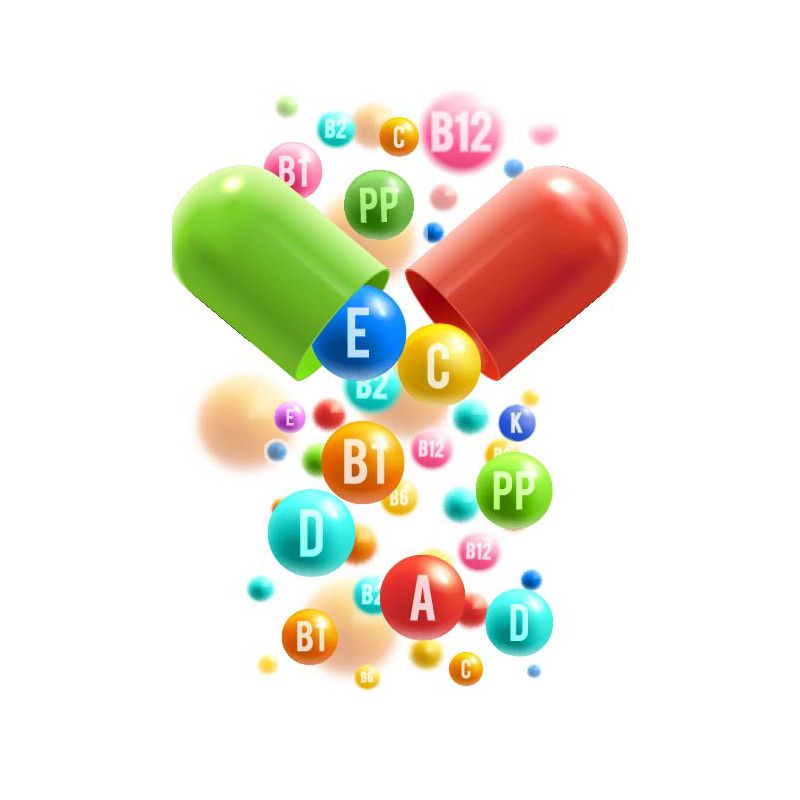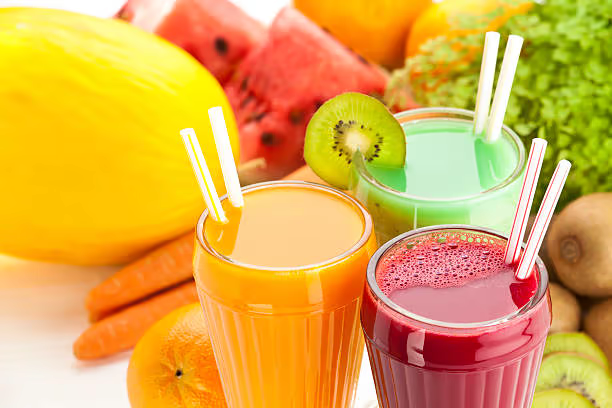Although juice provides vitamins and nutrients, its high sugar content necessitates moderation. Drinking 100% fruit juice sounds like a great idea for your health, but that isn't always the case. Sure, there are benefits to drinking fruit juice, beginning with the amazing list of vitamins and nutrients that each glass contains. However, 100% fruit juice has enough sugar to evoke unpleasant comparisons to soda. For some people, drinking juice for breakfast is as much a part of their morning routine as brushing their teeth. But people who drink fruit juice regularly and are interested in increasingly healthy options may be surprised at how well it fits their health goals.
What Is 100% Fruit Juice?
If you consume 100% fruit juice, you're drinking a liquid that has been pressed, squeezed, or otherwise extracted from the fruit. If you look at the nutrition labels on these bottles, you should see some familiar fruit names. Drinks having a lesser percentage of fruit juice, such as 10%, are labeled differently. These can be found on the shelves under titles like fruit cocktail, drink, punch, or exotic-sounding nectar. If you look at the ingredient label on these bottles, you'll undoubtedly see additional sweeteners like high-fructose corn syrup.
Benefits Of 100% Fruit Juice
Fruit juice provides many of the vitamins and elements that make fruit a healthy food choice. The United States Department of Agriculture suggests consuming two cups of fruit every day. What exactly is a "cup" of fruit? I'm glad you inquired! That's roughly equivalent to a large orange or banana, a small apple, or eight strawberries in their natural form.
Is Drinking Fruit Juice The Same As Eating The Whole Fruit?

Image source: financialexpress.com
The simple answer is no. Some of the fantastic advantages of fruit are lost during the juicing process. The most significant loss is in fiber content, which is a benefit of the whole fruit that is beneficial to your digestive system.
Because of the "fruit meat" you ingest, whole fruit provides you with a fuller feeling than juice. That means you'll be less likely to get hungry 30 minutes later and start snacking.
Sugar In 100% Fruit Juice
Many fruits are high in natural sugars, which is why they are often referred to as "nature's candy." When you juice fruit, you concentrate the sugar into a very drinkable liquid. Consider this, says Czerwony: A cup may require the juice of five or six oranges. That's a lot of sugary liquids, which might trigger a surge in blood sugar levels very away. Let's crunch some numbers. A glass of orange juice has roughly 23 grams of sugar, which is not far from the American Heart Association's daily sugar limit. (The American Heart Association recommends no more than 36 grams of sugar for males and 25 grams for women.)
100% Fruit Juice Vs. Sod
The high sugar content of juice is comparable to that of sugary sodas, which are not exactly known for being healthy. (Of course, the vitamins in juice make the drink healthier than soda.)
Should you drink 100% juice?
Does the juice have some sugar? Absolute. But also, many people do not fill their diet with a lot of fruit. The Centers for Disease Control and Prevention (CDC) reports that about 12 percent of American adults eat the recommended amount of fruit per day. Juice consumption is included in the calculation. So in most cases, too little fruit is a bigger problem than too much 100% fruit juice. "Juicing is an easy way to add fruit to your diet, and there's nothing wrong with enjoying a glass," says Chervoni. "The most important thing is moderation.
Read Also: Healthy Blueberry Muffin Recipes
Vitamins, Minerals and More

Image source: cdn.sanity.io
Nutritionally, juice does not offer the same benefits as pieces of fruit. That's why the US Dietary Guidelines say at least half of the two cups of fruit you eat a day should be whole fruit. Even though juices are rich in pulp, they lack fruit fiber and are a concentrated source of calories. For example, a cup of orange juice contains 110 calories, which is twice as many calories as eating an orange. On the plus side, fruit juice can be a good source of nutrients such as potassium, vitamin C and other antioxidants. And any 100% juice can contribute to your daily fruit intake.
A small amount of juice can help. A large 2019 study in the British Journal of Nutrition found that people who drank about 150 grams or less per day had a 15% lower risk of cardiovascular disease than those who did not drink alcohol. But drinking more juice may not be good for your health. . In a large study (one of the first to examine the effects of juice on a diverse group of adults), researchers found that people who got more than 10 percent of their calories from sugary drinks, including juice, had a 14-fold increased risk % bigger. Less than 5% of people are likely to die prematurely. If you look at fruit juice alone, your risk increases by 24% for every additional 12 ounces per day.
Fruit juice may increase the risk of type 2 diabetes, but studies are inconclusive. If you have diabetes, juice should be consumed with other carbohydrates as it raises blood sugar.
Another problem with juice is, "You get used to sweet things," says Sandra Arevalo, RDN, director of community and patient education at Montefiore Nyack Hospital in New York. As a result, you crave more sweets. Additionally, liquid calories may not be as satisfying as chewed foods.








